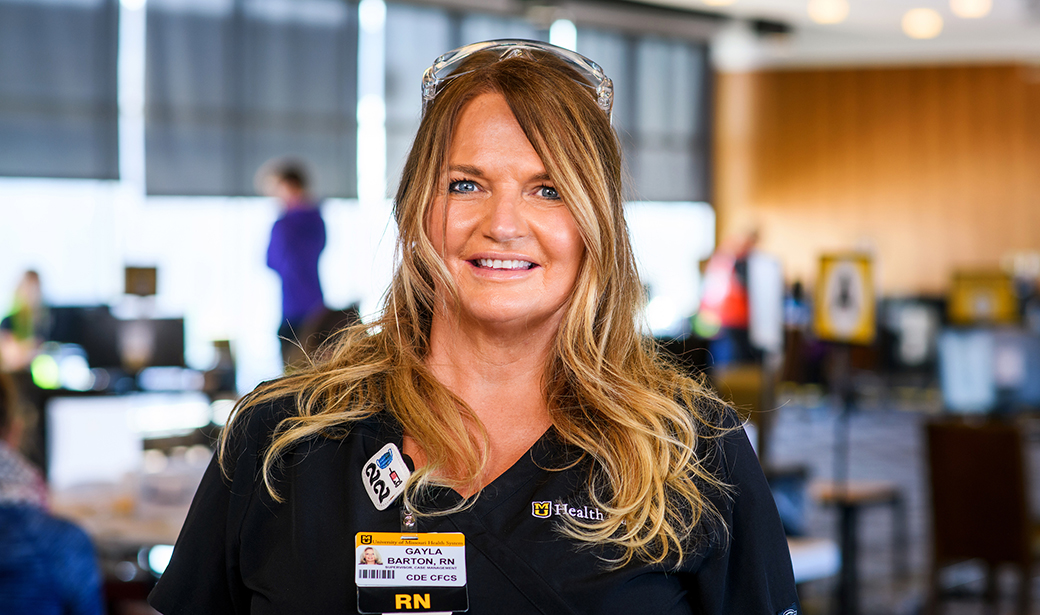When Gayla Barton was a little girl, her first stop after school was an elderly neighbor’s home. The man spoke with the aid of an artificial voice box, and the vibrating sound of his speech scared the other kids in the neighborhood. She saw past that and found a sweet and funny gentleman who enjoyed her company.
“He was in his 80s, but he was one of my best friends,” Barton said. “I would go over every afternoon. It was the highlight of my day talking to him.”
That empathy and appreciation for her elders carried through to her career.
Since 1996, Barton has been a registered nurse at MU Health Care, and for the past 10 years she has been the supervisor of ambulatory care management in the primary care clinics. She loves her job so much, she’s willing to commute every day from Hannibal. One of the most rewarding parts of her role is comforting older patients.
“A lot of them are lonely and scared, especially because of COVID-19,” she said. “I have one patient who calls me two or three times a day, and it’s OK, because I know I might be the only person she talks to all day. Sometimes they don’t really want anything except to hear someone else’s voice. During the pandemic, this job has been a little more rewarding, because sometimes you feel like you’re the light in a person’s day.”
When MU Health Care opened its COVID-19 vaccination site at Faurot Field, Barton volunteered for as many shifts as she could, helping to check in patients, administer the vaccine and answer questions. She regularly worked 12-hour stints at the vaccination site. (The Faurot Field vaccination site closed in June, and vaccinations are now available in select clinics and pharmacies. Learn more.)
“Gayla has been such a pleasure to work with,” said Athena Bouras, who helped organize the vaccine clinics. “In addition to the many hours she has worked in the clinic as a vaccinator, she has spent many additional hours on the phone with patients assisting them with getting an appointment.”
The payoff for Barton is the reaction of people she helps.
“One of the best things about the vaccine clinic is how happy people are,” Barton said. “Normally, when people come in to get vaccinations, they’re not excited about it, but now people are coming in crying tears of joy. It makes me cry just thinking about it.
“They’re crying because they feel safe again and because they’re going to get to see their children and grandkids again. I can’t explain how powerful and touching it is. When you work these vaccine clinics and you have 12 hours of pure joy from patients, it’s amazing.”



